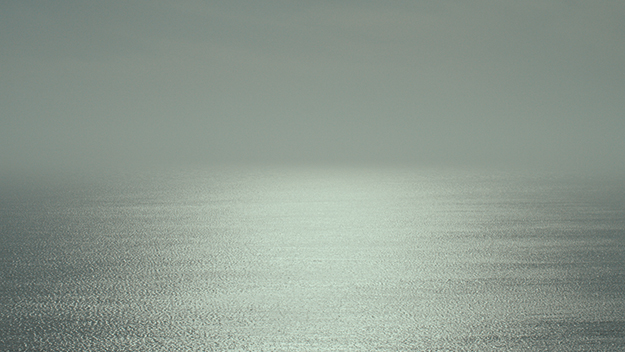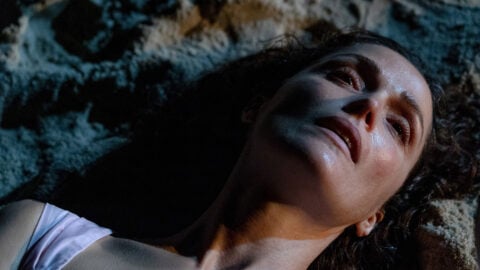News to Me: Atlantics, The Irishman, and listmania

Atlantics (Mati Diop, 2019)
1) We start this week by wading through the holiday deluge of “best-of” lists—some personal, as in the case of K. Austin Collins and Richard Brody picking their best films of the decade, and others crowd-sourced and more canonical, as with the recent BBC announcement of “The 100 Greatest Films Directed by Women.” TIFF Cinematheque have put together their best of the decade (their No. 1, Zama, our best of last year); and Sight & Sound just published their best of 2019. But for one list to rule them all: Film Comment’s best films of the year list goes live soon, to be unveiled at Film at Lincoln Center on Tuesday, December 10.
2) And now, in the opposite direction: “Lists of films will not save you. Lists of films will not save films . . . Lists of films will not write new film histories . . . Metrics are our enemy, and the enemy of art and of political struggle.” For Another Gaze, Elena Gorfinkel writes “Against Lists”—a timely manifesto against the up-market Tomatometer that is the best-of list. (Another rallying cry: Mark Cousins writes to Bob Iger, begging that Disney donates just 0.1% of its profits to film preservation, citing the new programming ban on 20th Century Fox films—“don’t you owe it to the movies?”)
3) In the vein of writing new film histories, then: the Five Flavours Film Festival—a Polish group focused on Southeast Asian filmmaking—recently posted this roundup of contemporary Japanese cinema (coinciding with their retrospective on the “cinema of Japanese peripheries”). The authors address Japan’s ostensibly thriving film industry and discuss the prevailing, stifling obsession with reducing risk at all costs (cc: Marty). “A key element to triggering this spark will be Japanese filmmakers’ sense of their own brand identity . . . As a result, a new generation of young directors may recognize their international potential.”
4) Mati Diop’s Atlantics is finally available to stream on Netflix. MUBI recently posted a critical roundup of the film, featuring three of our pieces (posted the other week) as well as great writing from Nick Pinkerton, Amy Taubin, and Melissa Anderson. (One essential missing piece: this personal essay from Cassie da Costa on family, language, and colonialism: “Atlantics, which is primarily in the Wolof language, is a film that exists outside of a colonial gaze but, crucially, not outside of the violence of capitalism and corruption.”) And don’t miss your chance to stream Diop’s first short film, Atlantiques, made available by Unifrance until December 10.
5) The other big Netflix announcement is, of course, The Irishman being unleashed upon the world. In the context of last week’s mobsters vs. cowboys showdown, Adam Nayman writes on just how much gangsterism is woven into Scorsese’s conclusory epic: “Scorsese’s allusions go deeper, slicing through the surface of genre to draw real blood and leave real scars.” We gathered the four families to convene on this week’s FC podcast, with Nicolas Rapold, Michael Koresky, Shonni Enelow, and Molly Haskell giving their thoughts on the film’s acting, de-aging, and all-important duration.
6) The other, other big Netflix announcement—though this one was less captivating to a post-Thanksgiving-meal audience—is that they’re buying the Egyptian Theatre in Los Angeles. “Purchasing the Egyptian would allow Netflix to showcase Oscar-eligible movies without having to deal with other theaters’ traditional release-window requirements,” writes Chris Lee, arguing that the move circumvents any anti-Netflix policy fomenting in the Academy votership. After announcing also that they would keep the Paris Theatre running indefinitely, A.S. Hamrah probes Netflix’s latest marketing campaign through a more cynical lens: “It could be that movie theaters are now just a brand activation designed to make moviegoers happy.”
7) Duke University Press have just made the 100th issue of Camera Obscura available for free until February 2020. The issue, originally published back in May, focuses entirely on the life and work of Chantal Akerman, partly to investigate Camera Obscura’s own history—“to mark the journal’s ongoing commitment to such dialogic encounters between feminist criticism and moving image practices.” Other entries in the issue include a conversation with Claire Atherton (as well as a translation of Atherton’s Tribute to Chantal Akerman) and Sandy Flitterman-Lewis’s Souvenirs de Chantal, which begins each paragraph, “I remember…”
8) If you watched The Irishman this weekend and quietly thought to yourself, “Man, I would love to relive the intricacies of New York’s burgeoning labor movement in the latter half of the twentieth century through a firsthand POV,” then NYC’s Municipal Archives Collections has you covered. The Department of Records & Information Services recently digitized 140 hours of “overt and covert surveillance” undertaken by the NYPD between 1960-1980, all filmed in black and white 16mm. The footage features JFK, the Black Panthers, various union protests, and more.
9) More free films: a few weeks back we mentioned the release of Jonathan Glazer’s new short, The Fall, which was, at the time, only available for the Britons. A24 has since made the film available here (Candians may still be barred). Nicolas Winding Refn has made a lost Andy Milligan film, House of Seven Belles, available on his website. And lastly, perennial favorites Le Cinéma Club conclude their series “Women to Watch: Five New Shorts by Exciting Voices” with Faren Humes’s Liberty, the story of two dancers from Miami’s Liberty City.
10) Last up this week is some friendly in-house promotion for Feast of the Epiphany, the filmmaking debut of FC mainstay Michael Koresky. Co-directing the film with Jeff Reichert and Farihah Zaman, Koresky writes on his inspiration for the film—from James Joyce to Terence Davies—as part of our recent Inspired column: “Making a movie is like reaching out your hand into a void and hoping that someone else grabs it.” With the film now playing at MoMI, the directorial threesome sat down with Criterion’s Andrew Chan to discuss their collective filmmaking experience.
We leave you this week with—courtesy of a Twitter tip from FC contributor Ashley Clark—Jeremy Deller’s Everybody in the Place 9, a social history of the UK in the late ’80s, as told through the acid house scene.







